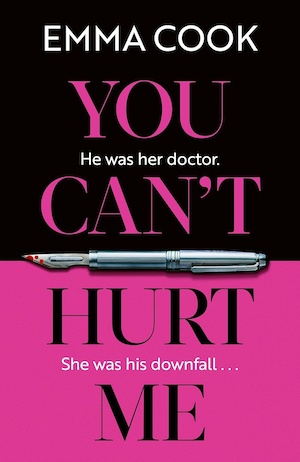
This is Emma Cook’s first crime novel, but it arrives with the confidence of an accomplished author. And so it should, because although this standalone mystery is her first book of genre fiction, Cook is an experienced newspaper editor and author of several non-fiction works.
It’s a slow-burn, multi-layered story which takes a while to click into gear. It’s not even clear if there’s been a murder for many chapters. The bulk of the book is about the relationship between journalist Anna and Dr Nate Reid, a brilliant but troubled neuroscientist. Down on her luck, Anna has a fractious relationship with her half-brother, is still traumatised by the death of their parents years before, and, like all jobbing scribes, she’s desperate to land a profitable book-writing gig. She eagerly accepts a commission to ghostwrite Dr Nate Reid’s memoir about his deceased wife – and gets drawn into a web of passions and lies.
In 2019, Eva Reid seemingly overdosed on cocaine that was cut with fentanyl. Nate and Eva were a high-profile West London couple. They made headlines because he’s a world expert on pain, and she was immune to it – she lived with congenital insensitivity to pain (CIP), a bit like what Salander’s brother has in Stieg Larsson’s Millennium novels. Nate was studying Eva’s condition until doctor and patient became romantically entwined. Eva was also an emerging artist and a trainee therapist; her notes make up several chapters of the novel. She casts a shadow over the whole story, although she’s absent except for her journal entries.
It’s important to acknowledge that CIP is an actual condition, and a dangerous one. The inability to feel pain is life-threatening. It is possible to manage it with careful monitoring, and depending on the cause, some drugs like naloxone may help. But pain is a critical signal that alerts us to harm, and without it, individuals may unknowingly sustain injuries or infections. As a result, many affected people don’t survive childhood, something You Can’t Hurt Me points out. Is it crass to make it the focal point of a seductive thriller? It may seem somewhat sensationalist and, no pun intended, insensitive – especially since CIP is ultimately not central to the mystery, and the plot might still work without it. Eva is shown to be something of a reckless individual, and it’s odd to assume she’d be that way well into adulthood and marriage, given her serious health issues.
Though CIP provides a hook for why victim and suspect met, Cook is more interested in exploring relationship dynamics than medical mysteries. The first half of the book unfolds like a soap opera. Nate’s publisher, Priya, seems jealous for some reason, Anna is upset that her feckless half-brother Tony is pursuing a relationship with her flatmate, and we’re given several hints of secrets and infidelities. The will-they-won’t-they relationship between Anna and Dr Nate Reid, the desperate young journalist and the controlling pain doctor, is expertly teased. There’s a whiff of Fifty Shades of Grey about their connection; even the way the narrator prepares to interview this intimidating man feels like the first chapter of EL James’s potboiler.
But nobody is what they seem, and it emerges later that even Anna has a guilty secret. The second half of the book, as relationships begin to unravel, is a compelling read. There’s tension between all the characters, and if the novel starts clumsily, it makes up for it with the momentum of later chapters. Cook is good at eking out information, with a reporter’s eye for character detail. Any of the protagonists could be hiding something, and when the twists come, they’ll have you re-reading earlier sections to see where you were led astray.
Beneath the thriller’s surface, there’s a subtle yet potent vein of feminism, highlighting the ways men exert control over the women around them, both emotionally and physically. Nate, Tony and even Anna’s dead father are sinister presences. Women’s bodies are sites of manipulation, from the clinical invasions of Nate’s pain lab to the hidden pregnancy and domestic violence we discover later. Even Eva’s art installations – fractured glass women’s torsos – are a symbol of this, and the rebellion against it.
It’s reminiscent of Conviction by Jack Jordan, similarly set in London about a woman with a secret, although Emma Cook possesses a more adept, observant style. Despite its slow start, You Can’t Hurt Me evolves into a well-paced thriller that balances psychological insights with genuine suspense. While some readers might question the use of CIP as a plot device, Cook’s deft handling of themes around control, relationships and power makes this an impressive crime debut. With screen rights apparently already sold, Anna and Eva’s tale seems destined for a wider audience.
Orion
Print/Kindle
£22.00
CFL Rating: 4 Stars